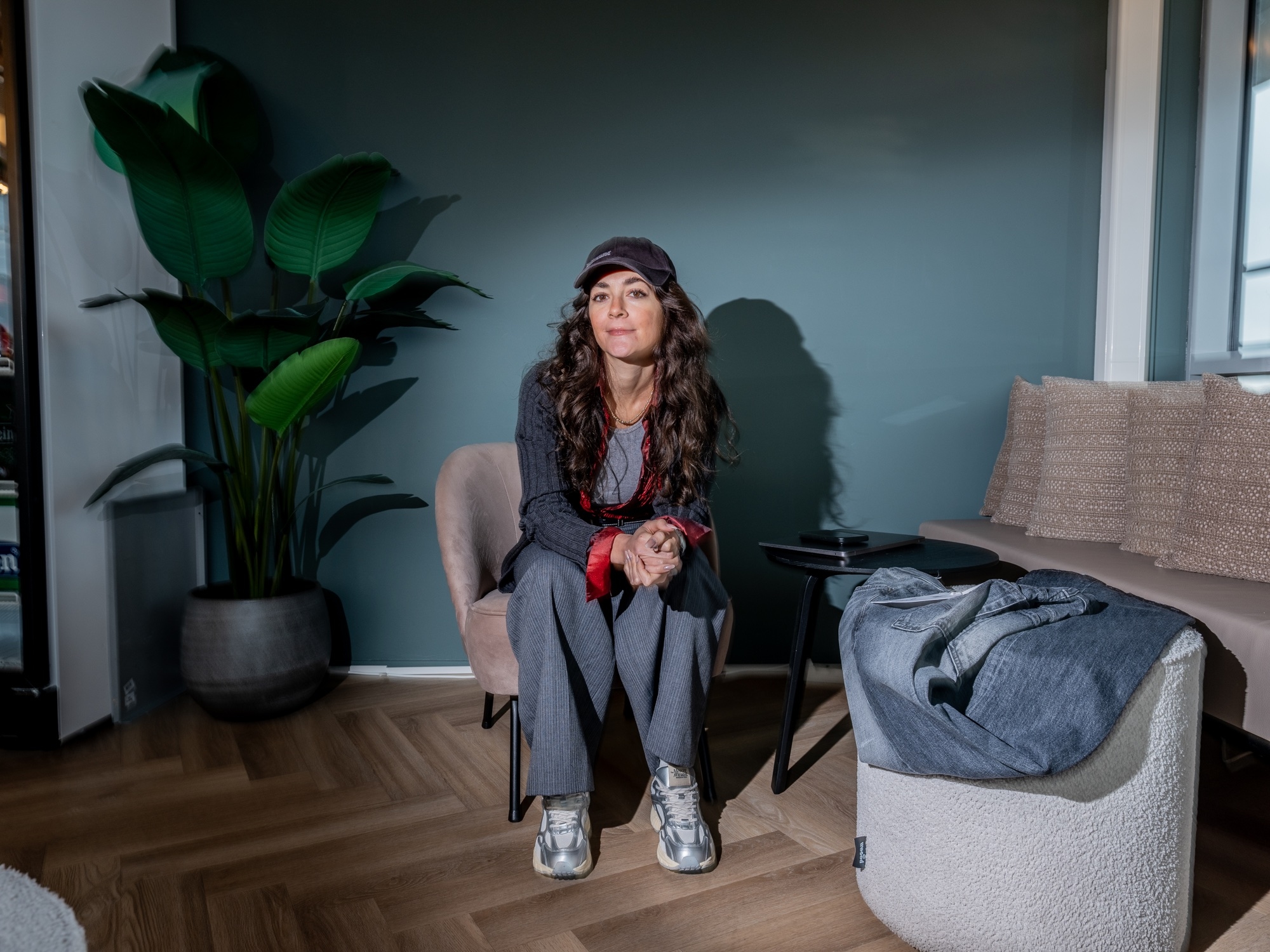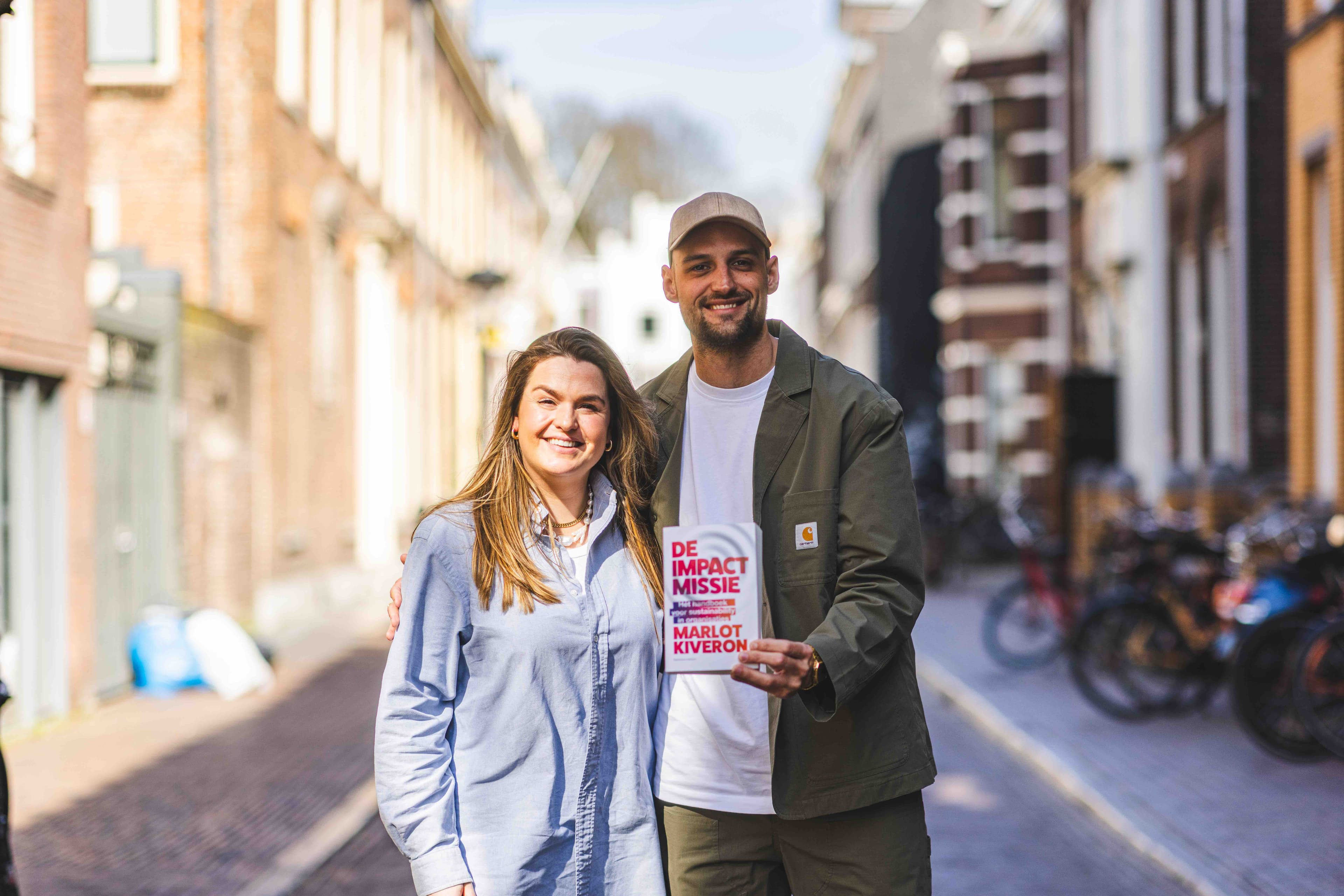In an era where sustainability in fashion is no longer a choice but a necessity, Renoon is providing an innovative solution. Iris, the CEO of Renoon, shares how the company was born out of her passion for sustainability and technology, evolving into a key player in the realm of digital transparency for fashion brands.
Iris Skrami, born to Albanian parents and raised in Italy, recounts how her journey started with a personal interest in sustainability. “For me, it all began with food,” she shares. “Eventually, this expanded into fashion, as it aligned closely with my professional life.” Her passion stemmed from a desire to see sustainability not just as a buzzword but as a core value in both her personal and professional endeavors.

Having worked at major brands like Nike and PVH, where she was responsible for digitization efforts, Iris noticed how challenging it was for many businesses to integrate sustainability into their processes. “I saw how digital solutions could reduce waste and improve efficiency,” Iris explains. “That realization was the catalyst that led to the creation of Renoon.”
Renoon was established in 2020, during the height of the pandemic, with a clear mission: to provide consumers with trustworthy information about the sustainability of fashion products. “I remember trying to buy a sustainable black dress online,” says Iris. “After hours of searching, I felt completely lost. It was impossible to trust Brands’ sustainability claims without real transparency.” This frustration became the driving force behind Renoon’s inception.
Initially, Renoon launched as a consumer app, allowing users to quickly assess how sustainable a brand truly was. “We wanted to empower consumers to make informed choices based on their values, whether that’s environmental friendliness, fair labor practices, or supporting women- or black-owned businesses,” Iris notes.
From Consumer-Focused to Business-Oriented: The Shift to B2B
Following the app’s success, Renoon realized the potential to create a larger impact by collaborating directly with brands. “We’re now helping companies make their supply chains more transparent by providing digital product passports,” Iris explains. This system allows consumers to scan QR codes on garments and learn more about the origins and impact of the product. “Our goal is to empower consumers while helping brands future-proof their products,” Iris adds.
“We realized that consumers today want more than just marketing buzzwords; they want proof,” Iris explains. Through Renoon’s platform, brands can integrate detailed data about each product, including its origin, materials, manufacturing processes, and even the working conditions at the factories. By simply scanning a QR code, consumers gain access to a wealth of information that allows them to make informed purchasing decisions. “It's about making transparency seamless and accessible,” says Iris. “We’re helping brands not only meet new regulatory standards but also build trust with their customers by showing the real impact behind their products.” This system doesn’t just stop at transparency—it opens doors for brands to incorporate features like product repair, recycling options, and even resale possibilities, making sustainability an ongoing journey rather than a one-time claim.
“We’re now helping companies make their supply chains more transparent by providing digital product passports” Iris says

With stricter regulations on the horizon, such as upcoming EU legislation requiring companies to be transparent about their sustainability claims, Iris foresees a significant shift in the industry. “Many brands are now hesitant to make bold claims due to fears of being accused of greenwashing, but transparency will soon be non-negotiable,” she explains.
Renoon is playing a crucial role in helping brands adapt to this new reality. “We’re currently working with companies looking to bring production back to Europe for greater control over their supply chains,” says Iris. “Our technology supports them in this transition.”
A Look Ahead: The Future of Renoon
Renoon has set ambitious targets for the years ahead. “Our goal is to reach 1 billion consumers by 2030, enabling them to make more conscious choices,” Iris proudly states. She believes this will not only contribute to a better world but also foster a deeper connection between brands and their customers.
“Ultimately, it’s about making consumers feel connected to the products they buy,”
Iris emphasizes that new brands wanting to embrace sustainability need a clear vision. “You can’t do everything at once,” she advises. “You have to decide where your brand stands and how to achieve that step by step. It’s about staying true to your values and translating them into your products.”
Renoon remains dedicated to bridging the gap between consumers and brands through technology and transparency. “Ultimately, it’s about making consumers feel connected to the products they buy,” Iris concludes. “We don’t want to force sustainability onto people; we want to inspire them to want to be part of it.”

.jpg&w=128&q=75)


.png&w=3840&q=75)




.png&w=3840&q=75)